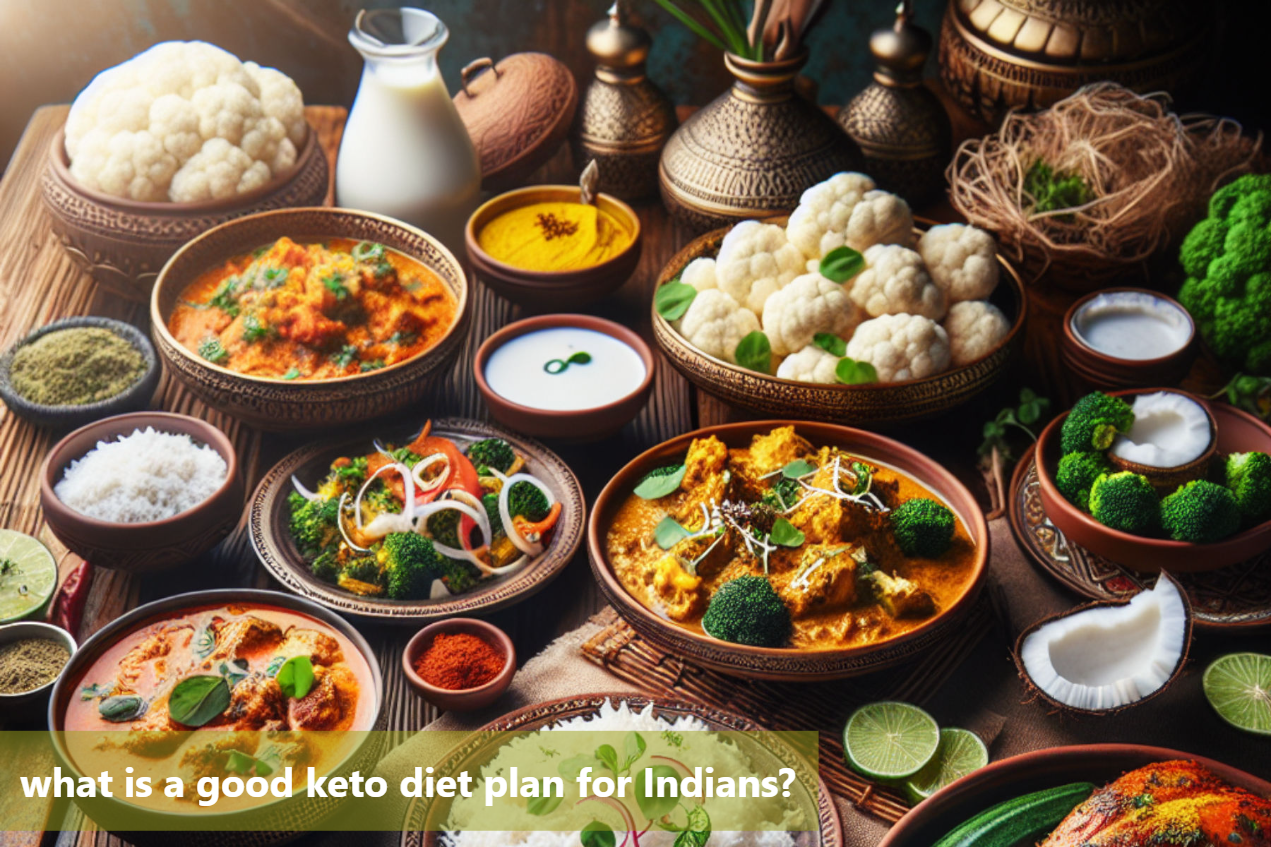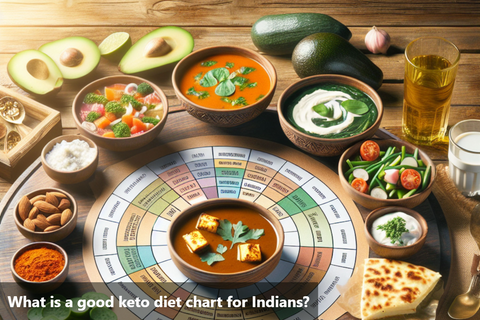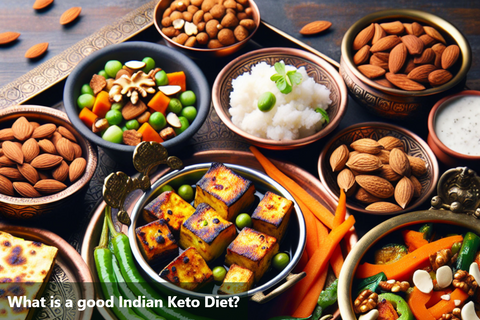
What is a good keto diet plan for Indians?
The keto diet, has gained significant popularity worldwide due to its numerous benefits for individuals seeking to improve their health and lose weight. This high-fat, low-carbohydrate diet is well-suited for Indians looking to shift their eating habits towards a healthier lifestyle.
One of the key principles of the keto diet is to drastically reduce carbohydrate intake and increase the consumption of healthy fats and proteins. By doing so, the body enters a state of ketosis, where it burns fat for fuel instead of carbohydrates, leading to weight loss and increased energy levels. This metabolic process is particularly beneficial for Indians who are looking to manage their weight effectively.
In India, where traditional diets are often high in carbohydrates, the keto diet provides a unique and interesting approach that aligns with many Indian dishes and ingredients. With a focus on foods such as ghee, paneer, avocados, and nuts, Indians can easily incorporate local flavors into their keto meal plans.

Traditional Indian Foods on a Keto Diet
When following a keto diet as an Indian, it's essential to know which traditional Indian foods align with the low-carb, high-fat requirements of this diet plan.
- Paneer Tikka: Grilled paneer marinated in yogurt and spices is a flavorful and protein-rich option for a keto-friendly meal or snack.
- Palak Paneer: A creamy spinach and paneer dish cooked in ghee can be a nutritious and satisfying keto meal.
- Chicken or Paneer Curry: Opt for coconut milk-based gravies instead of high-carb tomato or onion-based ones to keep your curry keto-compliant.
- Cauliflower Rice: Substitute regular rice with grated cauliflower as a low-carb alternative to pair with curries and dals.
- Egg Bhurji: Spicy scrambled eggs cooked with onions, tomatoes, and Indian spices make for a quick and tasty keto-friendly dish.
- Almond Flour Rotis: Replace traditional wheat rotis with rotis made of almond flour to enjoy your favorite Indian curries without the carbs.
- Masala Omelette: A versatile option for breakfast or a light meal, a masala omelette with herbs and veggies is a great way to incorporate protein and fats into your diet.
- Tandoori Chicken: Grilled chicken marinated in spices and yogurt is a delicious and protein-packed option for a keto-friendly meal.
- Saag Ghost: A rich and creamy spinach and lamb curry cooked in ghee can provide a flavorful and satisfying keto meal.
- Mutton Korma: Choose a low-carb version of this traditional dish made with tender mutton and a coconut milk-based gravy for a keto-compliant option.
Remember, by making simple ingredient swaps and being mindful of carb content, you can savor the taste of traditional Indian cuisine while staying true to your keto goals.
Sample Keto Diet Plan for Indians
A well-structured keto diet plan tailored for the Indian palate can be a game-changer in achieving health and fitness goals. Here's a comprehensive sample meal plan for a week that incorporates traditional Indian ingredients and flavors:
Day 1:
- Breakfast: Start your day with a delicious keto-friendly Masala Omelette cooked in ghee with a side of avocado slices.
- Lunch: Enjoy a fulfilling lunch of Palak Paneer made with cottage cheese and spinach cooked in coconut oil.
- Dinner: Indulge in a flavorful bowl of Cauliflower Rice Biryani garnished with mint and coriander.
- Snack: Munch on some crunchy Masala Almonds for a mid-day energy boost.
Day 2:
- Breakfast: Kick start your morning with a serving of Greek Yogurt topped with chia seeds and grated coconut.
- Lunch: Savor a creamy Butter Chicken prepared with tender chicken pieces simmered in a rich tomato and cream sauce.
- Dinner: Relish a plate of Tandoori Grilled Fish marinated in Indian spices and grilled to perfection.
- Snack: Treat yourself to a portion of Cucumber Chaat sprinkled with chaat masala for a refreshing snack.
By curating your keto diet plan with authentic Indian dishes and ingredients, you can embark on a flavorful journey towards a healthier lifestyle.

Common Challenges and Solutions for Indian Keto Dieters
One common challenge faced by Indian keto dieters is the pre-set reliance on carb-heavy staples like rice and chapati in traditional meals. Adapting to a low-carb, high-fat diet can be especially daunting when these staples are deeply ingrained in our food culture.
Another hindrance faced by many is the limited availability of certain keto-friendly ingredients in local markets, making it challenging to follow a traditional keto diet plan designed for Western settings. Finding suitable and cost-friendly replacements for ingredients like almond flour or avocado can be a struggle for Indian keto enthusiasts.
To overcome these challenges, Indian keto dieters can explore alternative flours such as coconut flour or flaxseed meal as substitutes for carb-laden grains. Incorporating regional low-carb vegetables like spinach, cauliflower, and bitter gourd can help diversify meals while staying true to Indian culinary traditions. Embracing healthy fats like ghee, coconut oil, and nuts can also enhance the flavor and satiety of keto-friendly Indian dishes.
By following a carefully crafted Indian keto diet plan, individuals can experience a range of benefits while still enjoying traditional Indian flavors. Embracing the keto diet as an Indian individual allows for a unique fusion of modern nutritional science with cultural culinary practices.
This Blog post is an initiative by Lo! Foods, to provide accurate and Nutritionist / Doctor approved information related to Health. Lo! Foods is India's leading brand for Everyday Functional Foods. Foods designed for specific Health conditions or Needs. Lo! Foods also runs India's largest range of Low Carb Healthy Cloud Kitchens, under the brand names of Lo!, ProteinChef, ATH (All Things Healthy) and DiabeSmart.













Leave a comment
Your email address will not be published.